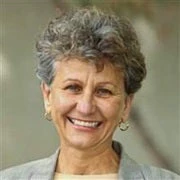
As the global summit gets off and running in New York to look at progress toward the Millennium Development Goals, we have a great deal to celebrate. At the same time, we have some big challenges ahead in order to realize the promise of the goals: a world that overcomes poverty and hunger, where all citizens have access to opportunity and hope.
On the celebration side: 30 years ago, 52 percent of people in developing countries lived in extreme poverty; by 2005, that share had been cut by more than half. In Africa before the triple blow of the food, fuel and financial crises in 2008, primary school enrollment rates were rising faster than in any other continent, and child mortality rates had fallen by 25 percent in about 13 countries in just 4 years.
But the crises have slowed down and even reversed progress toward the MDGs in too many countries. We estimate that 64 million more people around the globe are living in extreme poverty in 2010, and some 40 million more people went hungry last year because of the crises.
The good news is we know more than ever about what works to save lives, ensure that everyone gets quality basic health care and education, create jobs and reduce poverty. Whether it's trained birth attendants, early childhood nutrition, or educating girls, we have answers - and where we don't, we must continue to generate new knowledge. Money is important, but the most effective aid programs have strong leadership from governments, with donor partners and civil society coordinating in support of integrated country plans. And citizens can hold their governments accountable for delivering quality services.
So here's hoping what comes out of this Summit is not just words, but action.
Related Links:


Join the Conversation